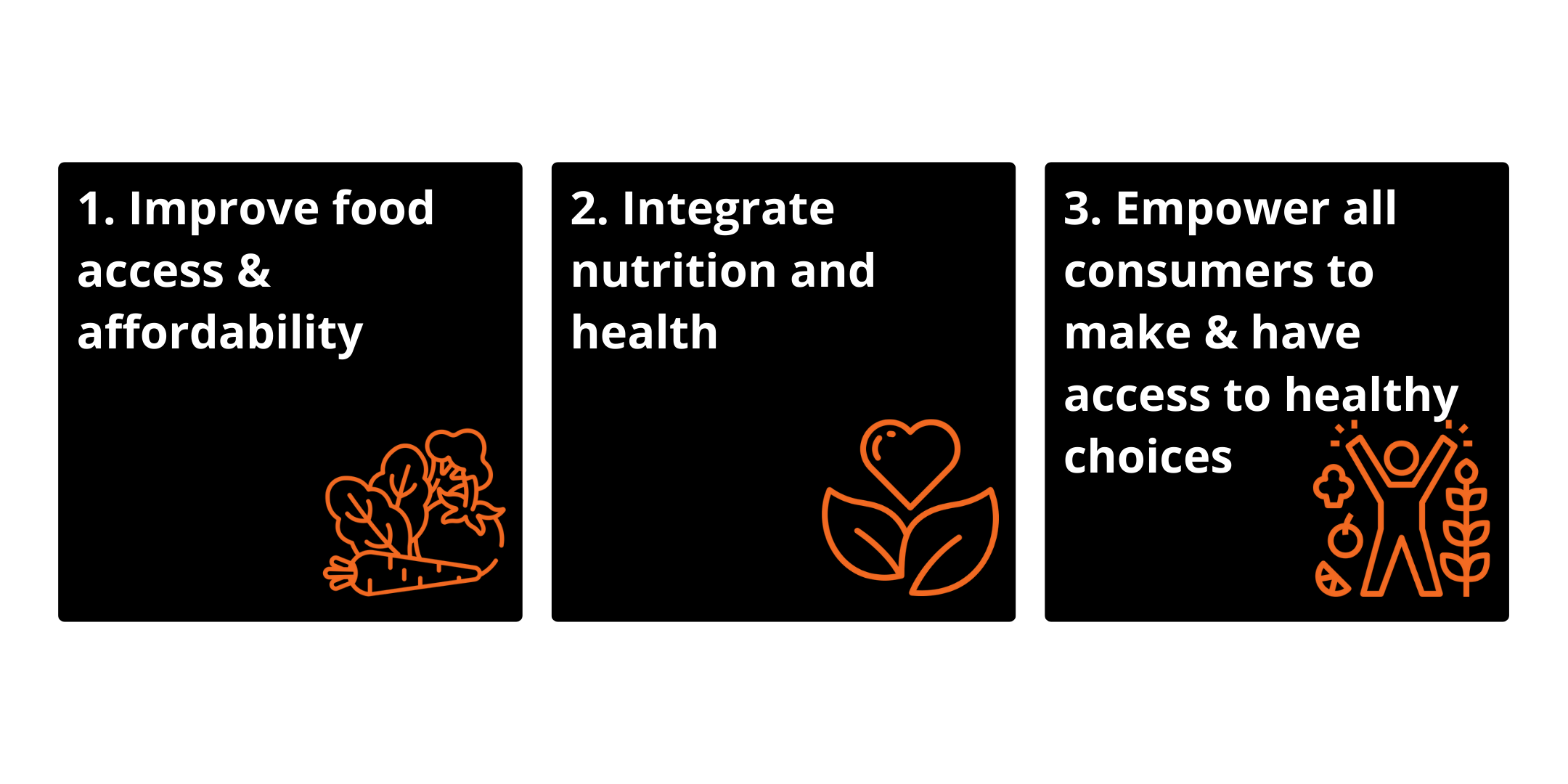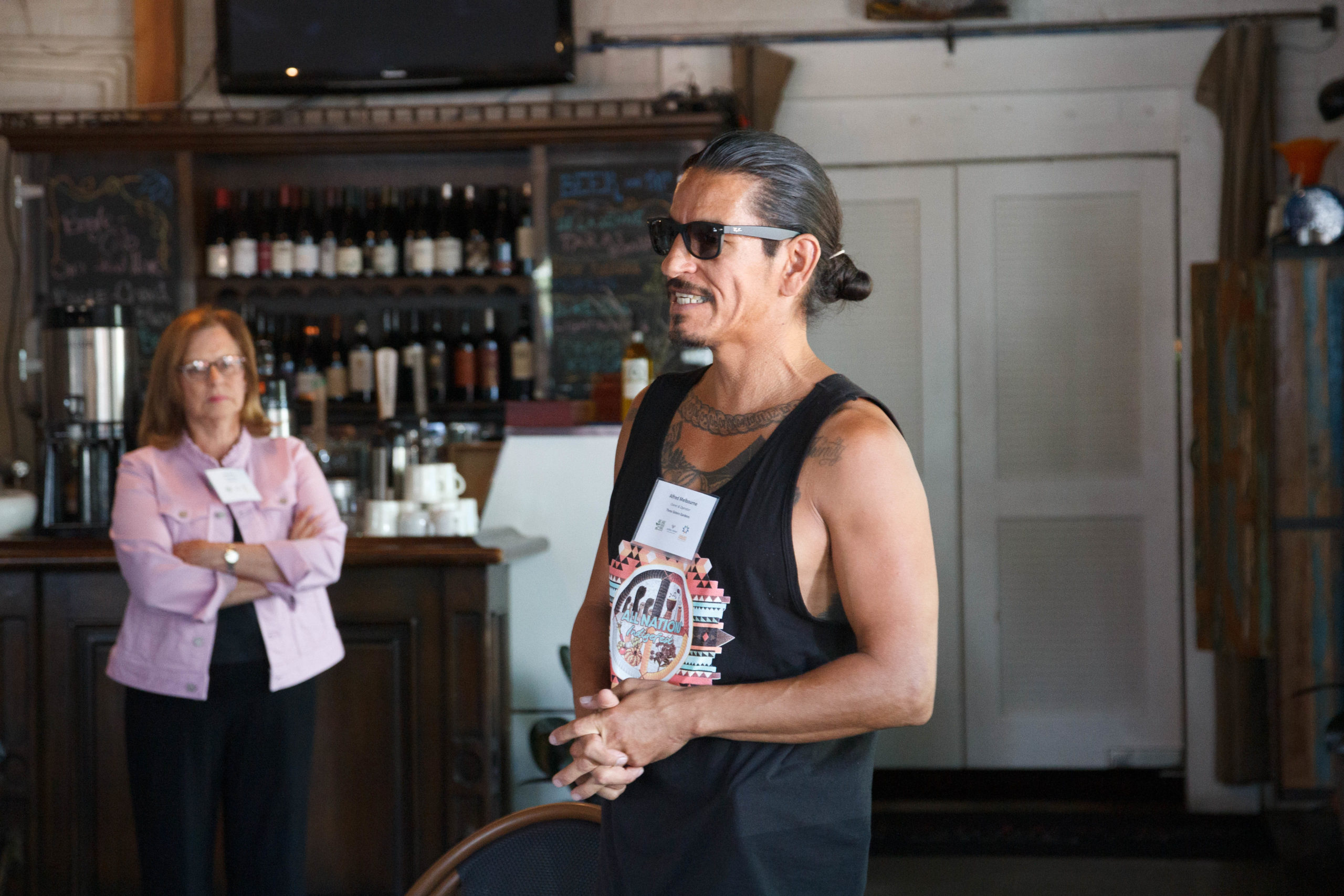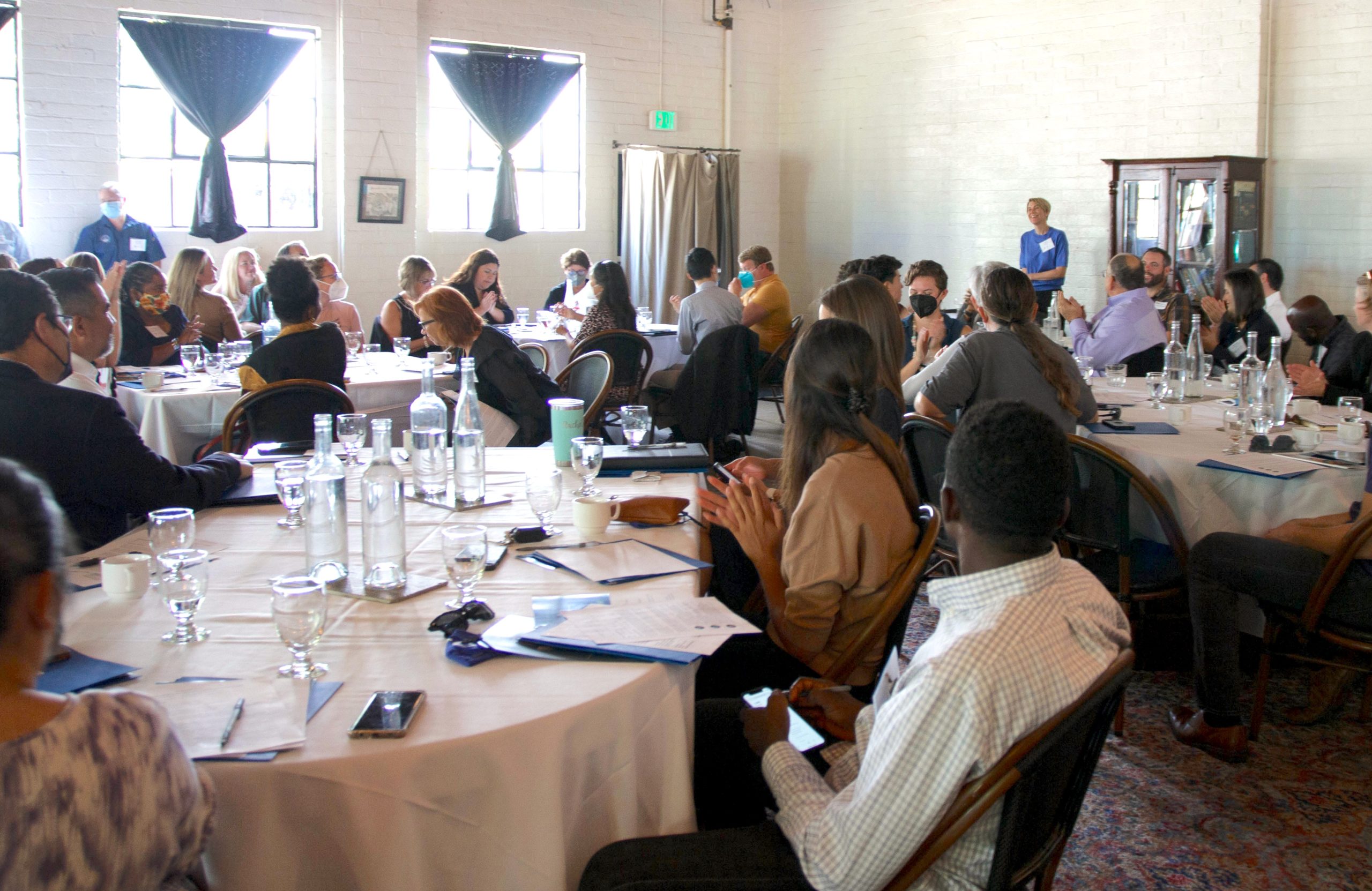Recap: White House Conference – Recommendations from America’s Farm-to-Fork Capital

As part of the We Are Farm-to-Fork initiative, Valley Vision convenes partners and community members to support future investments in the region’s food system.
On Tuesday, August 9th, Valley Vision held our first public, in-person event since the pandemic. The information shared by community partners during the listening session will inform the 2022 White House Conference on Hunger, Nutrition, and Health, which takes place in September. Organized under the banner of our community food system network “We are Farm to Fork,” participants included a vibrant cross-section of more than 75 people at Mulvaney’s B&L, including partners from government agencies, nonprofits, school districts, restaurants, health centers, grocery stores, and more (see Appendix A of the report for a full list of participants). It was an honor to have Maria Gallegos-Herrera, the new USDA Rural Development State Director for California, attend and provide opening remarks, as well as have staff from Congresswoman Doris Matsui and Congressman Ami Bera join us and advance the recommendations.
Using the toolkit provided by the White House Conference planners as a guide for regional input sessions nationally, our discussion focused on the following guiding pillars of the Conference:

For each of these issues, our event invited input into the following questions provided by the White House Conference planners:
What specific actions should the U.S. Federal government, including the Executive Branch and Congress, take to achieve each pillar? What are the opportunities and barriers to achieving the actions? Actions should include specific policy and/or programmatic ideas and changes as well as funding needs.
What are innovative public- and private-sector activities already happening at the local, state, territory, and Tribal levels that could inform actions at the Federal Level?

Participants gave feedback online and in-person. During the event, a cross-section of organizations provided lightning-round presentations, highlighting barriers, opportunities, proven models, and recommendations that demonstrated the breadth and diversity of partnerships, the creativity and responsiveness of solutions, and some compelling outcomes to date. These are the foundations of our recommendations to the federal government, which represent the needs and interests of the Sacramento Region. The recommendations range from streamlining specific regulations and providing increased flexibility, to investing in impact models that can be scaled and replicated across the country.
Several clear themes and recommendations were identified in the convening, that if adopted, would greatly facilitate systemic solutions to systemic challenges within our region and across the country. The recommendations reflect the Sacramento region’s partner-driven solutions that were effective in trying to address the rapid increase in food insecurity levels, lack of access to healthy foods, major supply chain gaps, and accelerated job and income loss during the start of the pandemic. Several strong models shared during the event are tangible, tested, and outcome-driven, and are reflected in the recommendations and in the supporting materials.
The recommendations build off the 2021 Sacramento Region Food System Action Plan, developed in Fall 2021 by Valley Vision in partnership with the Sacramento Region Community Foundation. These activities help position the Sacramento region’s future as a global innovator and leader in sustainable agriculture, food, and health.

Special thanks to our board members who attended, including Linda Cutler, Shawn Harrison, Chelsea Minor, Clay Nutting, Meghan Phillips, and Lori Rianda. Moving forward, we will incorporate this document into future efforts as we work to reduce food insecurity and strengthen the region’s food system.
To keep up with Valley Vision’s Food and Agriculture work to advance livability in the Sacramento region, email Grace.Kaufman@valleyvision.org to be added to the listserv!
Grace Kaufman is a Valley Vision Project Manager working in the Food and Ag and Clean Economy impact areas